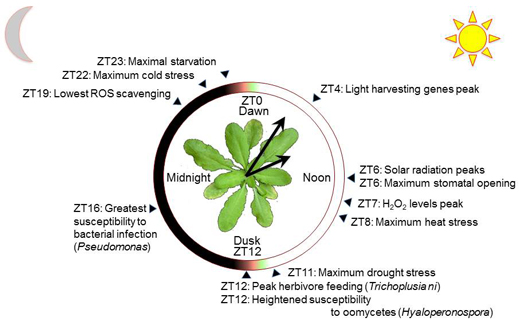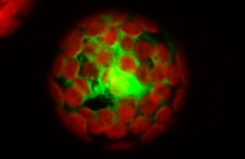News
Circadian Redox Signalling in Plant Immunity and Abiotic Stress
August 2013

Plant crops are critically important to provide quality food and bio-energy to sustain a growing human population. Circadian clocks have been shown to deliver an adaptive advantage to plants, vastly increasing biomass production by efficient anticipation to the solar cycle. Plant stress on the other hand, whether biotic or abiotic, prevents crops from reaching maximum productivity.
Stress is associated with fluctuations in cellular redox and increased phytohormone signalling. Recently, direct links between circadian timekeeping, redox fluctuations, and hormone signalling have been identified. A direct implication is that circadian control of cellular redox homeostasis influences how plants negate stress to ensure growth and reproduction.
Complex cellular biochemistry leads from perception of stress via hormone signals and formation of reactive oxygen intermediates to a physiological response. Circadian clocks and metabolic pathways intertwine to form a confusing biochemical labyrinth. Together with the Circadian Biology group of Dr. Gerben van Ooijen (University of Edinburgh), we aimed to find order in this complex matter by reviewing current advances in our understanding of the interface between these networks.
Our Forum review is Open Access and now available here or online in Antioxidants & Redox Signaling:
"Circadian redox signalling in plant immunity and abiotic stress"
Spoel S & Van Ooijen G.
ANTIOXIDANTS & REDOX SIGNALING, doi: 10.1089/ars.2013.5530.

